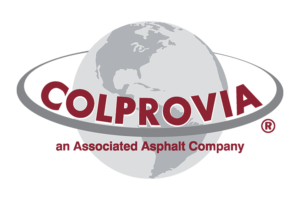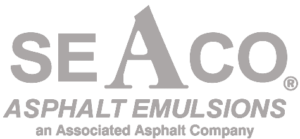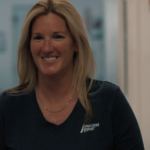“You never know where life will take you, but by building good relationships along the way and walking toward every challenge, you may go much further than you ever imagined.”
Ernest Hamilton lives by these words of wisdom. Ernie is our Senior Transportation Manager at Associated Asphalt and the author of “Overcoming Challenges: The Tar-Billy Way.” In his book, he tells about his exciting journey into the trucking industry and the obstacles he overcame over time.
RoadSigns; A Transport Topics Podcast
On Thanksgiving, Ernie discussed his experience on RoadSigns, the podcast series for transport topics. He spoke with the host, Michael Freeze, whom he’d previously met at a Technology and Maintenance Council (TMC) meeting. This council shapes the trucking industry from a technology and maintenance standpoint. The pair hit it off as they both are writers with backgrounds in the trucking industry. You can find a podcast transcript at the bottom of this article.
When asked about his story, Ernie explained that his family and friends were a major source of inspiration that led him to embark on his successful career path. From an early age, he had a passion for trucking. His father and uncle were both truck drivers. So, after high school, Ernie chose to follow in their footsteps. “All I wanted to do was drive. I didn’t even think about another occupation. There was nothing out there for me as far as I was concerned,” he tells Michael.
Alongside driving, Ernie built a campground with his family and friends, pictured on his book’s cover. Working as a team with these folks sparked something in Ernie and shone a light on his future career path. There were numerous challenges that the group had to overcome, but everybody came together. “It’s what actually inspired me to get into management,” Ernie says. No matter the challenge, Ernie would always try to offer the best possible advice.
The Path to Management
In 2005, Ernie decided to hang up his hat as a driver and dive into the management field. Ernie initially planned to get his Associate’s Degree. However, he gained an excellent education and even greater confidence while in school. So, Ernie went on to earn his Master’s Degree from Campbell University. He graduated with his MBA in 2011, and the rest is history.
In February 2016, Ernie joined the Associated Asphalt family. He oversees all our trucking operations based at our Martinsburg, Roanoke, Bristol, Hopewell, Columbia, and Tampa terminals. Something that has helped Ernie excel in his role is his personal experience as a trucker. “I know what it’s like; getting into management and having all that experience under my belt allows me to help the drivers the best way I can,” he says to Michael. Ernie stresses that being proactive rather than reactive is essential to ensuring production runs smoothly.
Working for Associated Asphalt has allowed Ernie to live out his values; daily, he manages his fleet with a safety-first approach. Ernie partnered with our IT department to develop a system that helps us easily comply with required maintenance regulations. To support his efforts to lead with a safety mindset, Ernie also acquired his Director of Safety Certificate from the North American Transportation Management Institute.
It’s apparent that Ernie genuinely cares for the people around him. “Right now, I work with an awesome company. Associated Asphalt’s been really good to me. I have no intentions of going anywhere as long as they’ll have me!”
We appreciate Ernie, too. He is truly an asset to the Associated Asphalt team – and a great author.
Remember, you can get a copy of his book, Overcoming Challenges: The Tar-Billy Way! We’re all very proud of you, Ernie.
Special thanks to Michael Freeze and everyone at Transport Topics!
Roadsigns Podcast Transcript
Speaker: From Transport Topics in Washington, DC: This is RoadSigns. And now here’s your host, Michael Freeze.
Michael Freeze: Thank you for listening to RoadSigns, the podcast series for Transport Topics that explores the trends and technologies that are shaping the future of trucking. Before we dive into today’s episode, we’d like to invite you to subscribe to Transport Topics, where you can receive exclusive access to our top 100 list, quarterly magazines, and other news surrounding the trucking industry.
For this Thanksgiving episode, we’d like to take a detour from the trends and technologies to explore something that’s more in line with the holiday: gratitude and giving.
A career in the trucking industry has opened many doors for people. Some grew up wanting nothing more than to be truck drivers, while others came into the profession later in life. No matter the past, those who truly choose the trucking profession have made the most of the opportunities, and use the success to help others deal with the challenges in and out of the workplace.
On this episode, we’ll ask the question, “What are trucking professionals most thankful for?” To answer that, we’ll speak with Etienne Hightower, CEO, and founder of Trucker Down, a nonprofit organization that assists truck drivers in times of need later in the program. But first, we’re going to talk about the path of personal development with Ernie Hamilton, Senior Transportation Manager with Associated Asphalt, and author of the book Overcoming Challenge: The Tar-Billy Way. Welcome to the show, Ernie!
Ernie Hamilton: Thank you, Michael. Glad to be here.
Michael Freeze: Thanks for coming on Ernie, and thanks for taking the time out of your Thanksgiving holiday to join us. Tell us about yourself and tell us about your role at Associated Asphalt.
Ernie Hamilton: Yeah, right now I’m the Senior Transportation Manager for Associated Asphalt. We are a liquid asphalt and emulsion company. We have liquid asphalt and emulsion in about 35 terminals – I believe from New York down into Florida. So we’re primarily East Coast. And we have trucks at 6 of those terminals from Martinsburg, West Virginia down into Tampa, Florida which I oversee.
Michael Freeze: You know, Ernie, one of the things about the book that I liked during our conversations that we had during the technology and maintenance council meeting in the fall during Team C Super Tech is, number one, your love for trucking and how that translated to a career that you have in a management position. I’m just curious myself about the book Overcoming Challenges: The Tar-Billy Way. What exactly is The Tar-Billy Way?
Ernie Hamilton: Well, if you notice there’s a picture on the front of the book of a campground. That campground is something that my friends and my family built; all of us together. And it’s what actually inspired me to get into management. But my friends – they were from North Carolina, so the Tar Heels. I was living in North Carolina at the time and my family is from West Virginia, and of course, they live there close to the campground. And you know, West Virginia, you all, everyone thinks of hillbillies. So it came out the “Tar-Billy Way.”
And growing up with my family and then actually watching all of this group come together while we were building this campground, you know, there was numerous challenges, you know, that I’d seen then in the campground that we had to overcome while we were building that. But also, the things that I’d seen my family overcome in trucking and growing up. It just seemed to be a fitting title, Overcoming Challenges: The Tar-Billy Way.
Michael Freeze: You know that’s – I mean it’s a great read by the way. One of the things that I was really drawn to, like I said, is your love for trucking. But just how you had a career path where you wanted to be a trucker. You know, your father was a trucker and your uncle was a trucker. From that love to get to the position where you’re at right now – number one, did you have a plan that you wanted to go elsewhere beyond trucking or was it if you were a truck driver for 40 years, that would be fine with you?
Ernie Hamilton: When I got out of high school, trucking was all I wanted to do. All I wanted to do was drive. I didn’t know of – I didn’t even think about another occupation. That’s it. There was nothing out there for me as far as I was concerned, and after being able to drive for – and I drove for I guess 10 years between when I drove for my dad and different ones getting experience, and I drove for Food Lion for 7.5 years. Ended up with about a million miles of safe driving under my belt. You know, and building the campground along the way, I was just inspired to get out of the trucking and get into management. The campground – all those guys that were involved in that were of the trucking industry as well.
Some of them worked with me at – there at Food Lion; actually worked under me, a few of them. And you know, they would bring their problems to me. Anything that’d come up they would come to me about whether it be the campground or a work problem. And they seemed to be very appreciative of the fact that I tried to help them. Anything that come up, I tried to help them and I enjoyed helping them. I enjoyed the feeling of making a difference; I felt like I made a difference. So in 2005, I decided, you know, I enjoyed making a difference on a level of, I guess you could say a hobby – let’s try it on a business level. So I got out of trucking in 2005 and got into management in 2007. Got a promotion and decided, you know what, let’s go back to school and get a degree.
Michael Freeze: You know that was one of the things especially you getting your MBA. Was that something that sparked from just getting into management? Because in the book, there are a lot of things with your position at Food Lion and your positions that you had earlier. You were able to identify challenges within those particular situations, and also looking back on them you could also the rival essence from that, from that experience as a trucker and even before. You know not having your CDL license just yet, but you’re working to get to that particular point. When you got into management, was that a game plan that you had? You wanted to get into management and then from that point, you wanted to pursue a college education? Was that the sort of the drive that you had in becoming a driver? Did you translate that well into getting your college education? How was that dynamic?
Ernie Hamilton: Yeah, it all kind of comes together. The driving piece of it – when I started driving with Food Lion driving, I think I was 23 at the time. And I believe I was about the youngest driver they had hired. That was, at the time, that was the job to have – a truck driving job. You couldn’t beat it. Getting that at that early age – that was almost unheard of. But I worked for it and it gave me confidence. You know what, I can do this. And then when I got into management, I didn’t know where I wanted to go in management. All I know is I wanted to get out of that truck seat and be put in a position where I could make a difference to other people.
And when I got into it, I found out after that first year – year and a half that you know what, not only do I like doing this, it seems like I got a little bit of a talent for it. People enjoy me doing it. But if I want to do it, I need to go back to school. And then when I went back to school, I was just going to get an Associate’s degree. So I enrolled in community college, got 2 semesters under my belt, and decided, “You know what, I can do this. I think I can go on for my Bachelor’s.” So I transferred to Campbell University and I don’t know, a year or so before I finished my Bachelor’s I guess I was just building confidence up in myself that I can do this – I ain’t got but just a few months left of this. I could do another year and have my Master’s, so why not? So I started school in 2007 and graduated in 2011 with my Master’s.
Michael Freeze: You got your MBA and then you started your management position. What types of work traits or work habits that you had as a driver – how does that go into getting into management? How did you perform in that way to make you successful as you are right now?
Ernie Hamilton: Well a lot of the things I think about management is understanding what your people are going through every day. From a driver’s standpoint I know what it’s like to be out there sitting in that truck for 10–12 hours a day, I know what it’s like to have to deal with traffic and deal with the weather. All the different things that go along with it. So getting into management and having all that experience under my belt – it just allows me to kind of stay in front of the drivers and help them I guess you could say maybe be proactive in a way so they don’t have as many problems as you can be if you’re reactive.
Michael Freeze: That kind of leads me into the next thing. The next thing about this, you know, you’re the Senior Transportation Manager. You have this journey and writing a book like this just sort of showing the challenges that you have and how you overcame them, and the lessons that you learned from that. What made you want to document this particular journey? Quite honestly it’s a journey that’s not finished yet so what made you want to document this particular part of your journey?
Ernie Hamilton: Well, there were a couple of things, to begin with. It all started in the Spring of 2008. I’d been at school for about a year. I realized that all those people, my friends, and my family that I’d spent so much time over the previous 5-6-7 years building this campground – I wasn’t able to see them at that time. Rarely talked to them, rarely saw them. But when I did talk to them, it was on the phone or if I’d seen them, it was in person. It was like we’d just hung up that phone from a previous call or we’d just seen each other yesterday. I didn’t hear stuff like, you know, “You’re too good to come around,” or “You ain’t got time for us.” They supported and I really appreciated that. So I decided, “You know what? I want to do something to show my appreciation to them.” And I really quite honestly wanted to tell the world this is the friends and family I’ve got.
Well as I got into writing the book, I kind of got to realizing when I got my Master’s and what have you and what I’ve done, I wanted to use my story to hopefully inspire other people. I just wanted to make a difference in their career, whether it be in the trucking industry or any industry for that matter, that you can do it.
You just got to have the confidence in yourself to move forward and to overcome each challenge as they come about and walk toward those challenges. A lot of times, I think our biggest competitor sometimes can be ourselves. Sometimes I think we come up with more excuses why we can’t do something instead of finding reasons why or ways we can do it
Michael Freeze: That was one of the things that I really liked about the book. That you just mentioned – just sort of the inspiration and just kind of let everyone in on the conversation we had during TMC. There was one question that you’d asked me and it just kind of made me ponder a little bit and just sort of “What’s your inspiration for writing?” And usually, when someone, especially from the industry, asks me about writing, it’s just sort of a simple question, “How does Transport Topics get published?” or just something like how you get those story ideas or whatnot. But no one’s ever really asked me just the inspiration part of it. Just sort of “What inspires you to write?” And I just remember that conversation. I kind of stumbled for a little bit thinking, “You know, what is my inspiration? You know? But I think that’s what brought you to write this particular book… just passing that info along.
Just lots of stories in there, like I said, lots of life lessons. Just you as a kid and just reacting and witnessing what your father went through, what your uncle went through, and just your family around you. And just kind of how they overcame adversity and just the challenges that they had just on their career. And writing the book, Ernie, was there one particular item that’s in this book that you really wanted to highlight for the most part? Was there one thing that when you wrote it that you were saying to yourself, “Oh man, this is a really good tidbit right here… I wish more people would know this?”
Ernie Hamilton: No, I don’t know that there’s any one particular item in that book that I’m real, I guess, more proud of than the rest of it. There are sometimes I wonder if I should’ve put more in the book because the challenges in the book are just a reader’s digest version. There are a lot of things that went on over the course of time it took to write this book which was – I mean, it was 14 years. We started, I started it in 2008. It got published in May of this year. There were a lot of other things that I could’ve put in that book that I think would’ve been relevant.
But what was scary about putting them in there is most of the people I’m trying to inspire are not going to pick up a book that looks like an encyclopedia. I wanted to keep it short, I wanted to keep it simple. And of course, I had to be careful too, you know, for professional reasons. There were things that happened over the course of my professional career since I got into management that I didn’t – even though they were challenges I had to overcome, I didn’t feel they were appropriate to document in a book. So I chose to take the high road on some things, I guess you can say.
Michael Freeze: That’s okay, that’s okay. I mean, it was a well-documented journey. Just the fact that you know it’s not, “I climb Mt. Everest.” But the thing is these were challenges for you and if anyone can read that and get that inspiration from it, that’s all well worth it. Ernie, one more question before I get you out of here. And again thank you for taking the time to talk with us during Thanksgiving. Really appreciate that. What are some of the things after the book that you would like to accomplish? Like I said, it really documents the journey you’ve been on. Do you feel you have another book in you?
Ernie Hamilton: I’ve actually thought about it. I actually started writing a book. I don’t know, another book – that is a challenge. One of the things about writing that i found is I wrote – before I wrote this, I wrote some news articles for Food Lion. Just monthly news articles for the little newsletter we had. To me, if I’m going to write anything, it’s got to be to inspire somebody. To write a self-help book or anything like that – it’s just really, really hard. It’s got to be something that inspires somebody. Maybe so, I’ve thought about maybe doing a sequel to this one down the road…just see where my journeys take me. I work right now with an awesome company. Associated Asphalt’s been really good to me. I have no intentions of going anywhere as long as they’ll have me. I’d kind of like to stay here, but who knows where we’ll end up going you know together as a company and where that journey’s going to take me, myself. So I don’t know. Maybe so. I guess the biggest thing I’m trying to figure out now is exactly where I want to go with this one book. There are a lot of different ways I can go, I’m just not quite sure what I want to do yet.
Michael Freeze: Alright, well I mean, like I said, it’s a journey and decisions aren’t necessarily time-based. The world is your oyster so they say. But we’ve been speaking with Ernie Hamilton, Senior Transportation Manager of Associated Asphalt, and author of Overcoming Challenge: The Tar-Billy Way. Hey Ernest, how can one get this book?
Ernie Hamilton: The book is available on Amazon, it is available at Walmart, Target, Barnes & Nobles, and Pocahontas Press. They can also get an audio version soon. It’s not out yet. The audio version is coming. I talked to my editor this weekend. So if somebody’s looking for an audio version, if they’ll just be patient. That is coming to a theater near you soon.
Michal Freeze: Alright and this is a – the book itself as Ernie was saying, is a life lesson but it’s centered on the trucking and transportation industry, so it’s a great read. Ernie, thank you very much for joining us.
Ernie Hamilton: Michael, thank you so much for having me. And I hope you have a wonderful day with your family.






